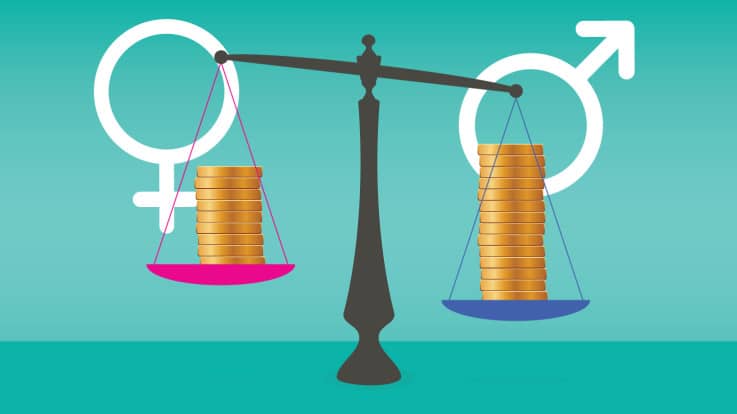In a nation known for its progressive ideals, it may come as a surprise that some working women in Iceland still face pay disparities, earning at least 20% less than their male counterparts in similar positions. Moreover, statistics reveal that two-fifths of Icelandic women experience gender-based and sexual violence during their lifetimes. In response to these pressing issues, Iceland’s Prime Minister, Katrín Jakobsdóttir, has joined tens of thousands of women in a resolute strike for equal pay.
Katrín Jakobsdóttir, prior to the strike, declared her intention to participate in this widespread industrial action, orchestrated under the banner ‘Do you call this equality?’ As part of the strike, she chose not to attend her official duties for the day, exemplifying her commitment to raising awareness about the deep-rooted problem of systemic pay discrimination and gender-based violence.
The strike is known as “Kvennafrí” or “Women’s Day Off,” and its primary goal is to shine a light on the pervasive issues of pay discrimination and gender-based violence. In a statement to Ms. Jakobsdóttir firmly asserted, “I will not work this day, as I expect all the women [in cabinet] will do as well. I have decided not to have a cabinet meeting tomorrow, and in Alþingi [Iceland’s parliament], only male ministers will answer impromptu questions. We show solidarity in this way.”
Organisers of the campaign, on their official website, have urged all women in Iceland, including immigrant women, to cease all forms of work for the day, encompassing both paid and unpaid work, including household chores. The entire day is dedicated to women (and non-binary individuals) taking a stand to underscore the significance of their contributions to society.
This remarkable event occurs nearly half a century after Iceland organised a full-day women’s strike in 1975, a momentous occasion when 90% of Icelandic women chose to abstain from work in support of Kvennafrí. This historical event is credited with ushering in crucial changes in Iceland, including the election of the world’s first female president of a nation. Some of the women who actively participated in the 1975 strike have been instrumental in orchestrating today’s strike, underscoring the persistent demand for the valuation of women’s work.
Despite Iceland’s reputation as a global leader in gender equality, as evidenced by its consistent ranking at the top of the World Economic Forum’s gender gap index for 14 consecutive years, substantial disparities still exist. No nation has achieved complete gender equality, according to the index, and Iceland, despite closing over 90% of its gender gap, stands alone in this accomplishment. Shockingly, some women in certain professions in Iceland continue to earn at least 20% less than their male counterparts, as reported by Statistics Iceland.
A study conducted by the University of Iceland has unveiled another disconcerting statistic: 40% of Icelandic women encounter gender-based and sexual violence during their lifetimes. Strike organiser Freyja Steingrímsdóttir, representing the Icelandic Federation for Public Workers, emphasised, “We’re seeking to bring attention to the fact that we’re called an equality paradise, but there are still gender disparities and an urgent need for action. Female-led professions such as healthcare services and childcare are still undervalued and much lower paid.”
Industries where women constitute the majority of the workforce, including healthcare and education, will experience a substantial impact due to the strike.
The inaugural Women’s Day Off was observed on October 24, 1975, when 90% of Icelandic women took a stand against gender inequality by refusing to work. Since then, this powerful demonstration of solidarity has been repeated in 1985, 2005, 2010, 2016, and 2018, serving as a poignant reminder that the fight for gender equality is far from over.





